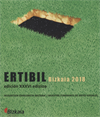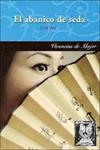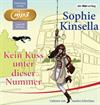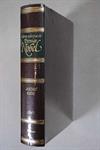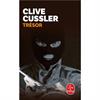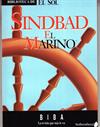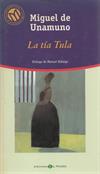The Malcontents
Registered by MRZECKER of Leominster, Massachusetts USA on 9/30/2020
 This Book is Currently in the Wild!
This Book is Currently in the Wild!
 This Book is Currently in the Wild!
This Book is Currently in the Wild!
1 journaler for this copy...
Keith’s approach to the underground of art dealings and political and romantic intrigue of former Nazis during the early 1980s is a fresh story, but the execution of the text itself seems to lack in some fundamental ways.
To begin, I have a history of reading some very interesting novels that deal with the historical influence and operations of “the other side” on my bookshelf. Gravity’s Rainbow, Slaughterhouse Five, and The Tin Drum (which Keith’s book surprisingly references Schlöndorff’s 1979 film) all delicately balance the horrors of the world’s worst conflict and genocide with the reality of the human beings operating within the parameters of war while trying to make sense of existence and the gruesome realities that humanity had never witnessed before.
Keith tells an interesting story, weaving the mundane with the emotional and political weight of postwar art and relationships. His approach to this untold story adds drama and emotional resonance to both sides of the postwar art and antiquities market, and what happens when paintings have unsavory origins. In a world where everyone is after what they personally think is the right thing to do, the refreshing and emotionally charged ending allowed everyone to settle their own demons while understanding the ethical and moral obligations they had.
My major issue with the book comes from three issues that I feel take away from the experience of the book in the execution of fundamental creative writing and editing skills. One is that the narrative doesn't follow “show don’t tell." While the story was interesting, I found paragraphs and even sentences that covered large swaths of time and conversations rather than the application of giving the audience a scene - in short, readers are told about events rather than experiencing them, thus making continuity difficult to follow. The second is that the dialogue was relatively unbelievable throughout, glancing at thoughtful, high language rather than the more colloquial execution of thought. Many times, characters with two separate language barriers to English were using higher language than native speakers, and tended to tell things about their existence, thoughts, and feelings, rather than the subtle subtext of normal conversation. It was a little unbelievable; even though it was well written, people simply did not speak English this way in the time and settings of the book. It is possible that people were speaking in other languages than English, but I was never certain of it, and I am unsure if the formality of the diction would even translate in that manner if it were used as a device to delineate languages. Finally, there were some basic punctuation errors in the printed edition that I read.
In terms of the story itself, it is an interesting take on the difficult social issues that plagued the west after the second world war. In terms of the writing, however, I feel as though the execution lacked in some ways that detracted from my experience with the story.
To begin, I have a history of reading some very interesting novels that deal with the historical influence and operations of “the other side” on my bookshelf. Gravity’s Rainbow, Slaughterhouse Five, and The Tin Drum (which Keith’s book surprisingly references Schlöndorff’s 1979 film) all delicately balance the horrors of the world’s worst conflict and genocide with the reality of the human beings operating within the parameters of war while trying to make sense of existence and the gruesome realities that humanity had never witnessed before.
Keith tells an interesting story, weaving the mundane with the emotional and political weight of postwar art and relationships. His approach to this untold story adds drama and emotional resonance to both sides of the postwar art and antiquities market, and what happens when paintings have unsavory origins. In a world where everyone is after what they personally think is the right thing to do, the refreshing and emotionally charged ending allowed everyone to settle their own demons while understanding the ethical and moral obligations they had.
My major issue with the book comes from three issues that I feel take away from the experience of the book in the execution of fundamental creative writing and editing skills. One is that the narrative doesn't follow “show don’t tell." While the story was interesting, I found paragraphs and even sentences that covered large swaths of time and conversations rather than the application of giving the audience a scene - in short, readers are told about events rather than experiencing them, thus making continuity difficult to follow. The second is that the dialogue was relatively unbelievable throughout, glancing at thoughtful, high language rather than the more colloquial execution of thought. Many times, characters with two separate language barriers to English were using higher language than native speakers, and tended to tell things about their existence, thoughts, and feelings, rather than the subtle subtext of normal conversation. It was a little unbelievable; even though it was well written, people simply did not speak English this way in the time and settings of the book. It is possible that people were speaking in other languages than English, but I was never certain of it, and I am unsure if the formality of the diction would even translate in that manner if it were used as a device to delineate languages. Finally, there were some basic punctuation errors in the printed edition that I read.
In terms of the story itself, it is an interesting take on the difficult social issues that plagued the west after the second world war. In terms of the writing, however, I feel as though the execution lacked in some ways that detracted from my experience with the story.
Journal Entry 2 by MRZECKER at Little Free Library, Water St in Leominster, Massachusetts USA on Wednesday, September 30, 2020
Released 3 yrs ago (9/30/2020 UTC) at Little Free Library, Water St in Leominster, Massachusetts USA
WILD RELEASE NOTES:
Little free library release! It's also an autographed copy of the book!


